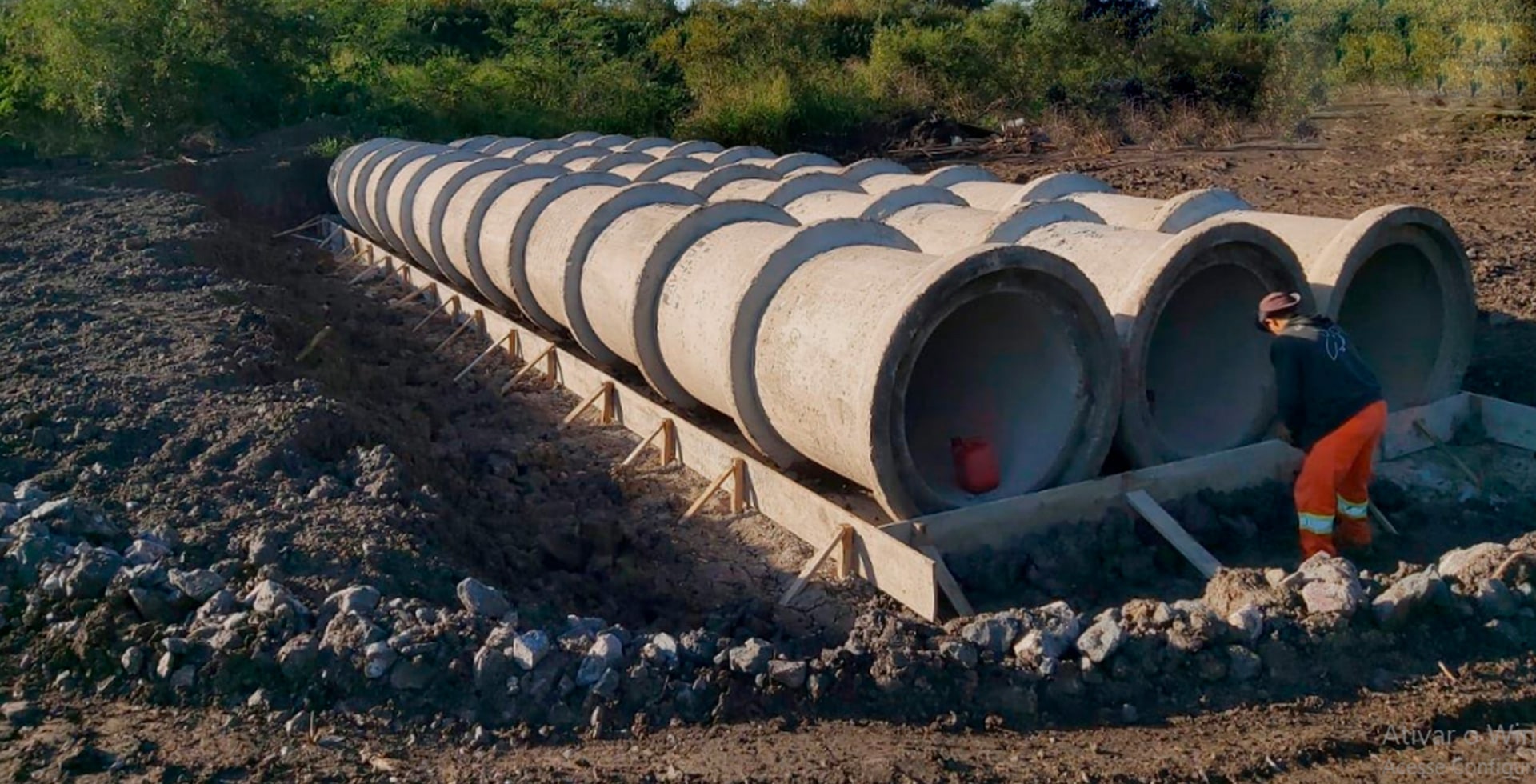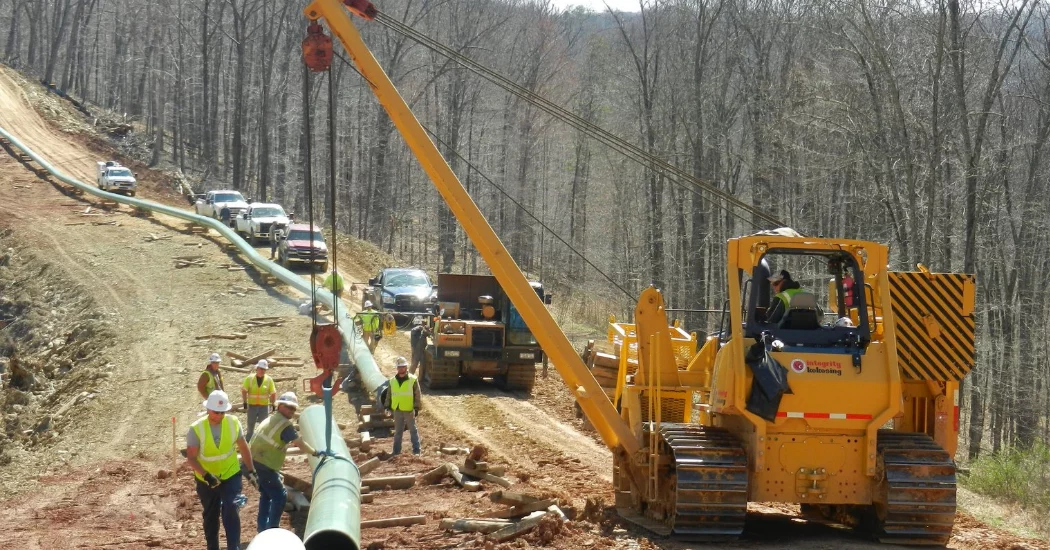The Crucial Overview to Recognizing Pipeline Construction Providers and Their Relevance
Pipeline Construction solutions are basic to the transport of crucial sources such as oil, gas, and water. These services involve meticulous planning and implementation, sticking to strict security and ecological criteria. As the sector adapts to contemporary obstacles, recognizing its components and ramifications becomes significantly important. What elements add to the expanding relevance of these services in today's economy? The complying with sections will certainly check out these essential facets.
Introduction of Pipeline Construction Solutions
Pipeline Construction services encompass a series of activities important for the setup and maintenance of pipes utilized to carry various materials, including water, oil, and gas. These services are critical for ensuring the reliable and safe activity of resources from one area to another. The procedure usually begins with comprehensive preparation and layout, which takes into consideration regulative requirements, environmental considerations, and logistical challenges.
Once planning is full, excavation and grading of the land are conducted to prepare the website for Pipeline installation. This is complied with by the actual laying of the pipelines, which includes welding or joining sections with each other to produce a continuous flow course. After installation, strenuous screening is performed to guarantee integrity and safety and security. Maintenance services are additionally given to address any issues that may develop gradually. On the whole, Pipeline Construction solutions play a critical function in supporting facilities for power and water circulation.
Key Elements of Pipeline Construction
A successful Pipeline Construction task counts on numerous crucial elements that assure the secure and effective installation of the Pipeline system. Detailed website analyses are critical, as they recognize the geographical and ecological elements that might influence Construction. Next off, the choice of suitable materials, such as installations and pipelines, is essential for securing durability and compatibility with the transferred substances.
Advanced Construction methods, consisting of trenchless technology and directional boring, improve performance and decrease ecological influence. Effective project monitoring is another crucial part, working with labor, tools, and timelines to fulfill project objectives.
Furthermore, communication among stakeholders, including designers, specialists, and local authorities, warranties positioning on task specs and needs. Lastly, complete quality assurance measures throughout the Construction process ensure conformity with industry standards and make the most of the Pipeline's functional lifespan. Jointly, these components develop the backbone of an effective Pipeline Construction task.
Safety And Security Criteria and Laws in Pipeline Construction

Governing bodies, such as the Occupational Safety And Security and Health Administration (OSHA) and the Pipeline and Hazardous Materials Safety Administration (PHMSA), set forth specific requirements that govern Construction methods. These consist of procedures for tools usage, worker training, and emergency feedback treatments. By executing these standards, Construction business not only protect their workers yet also protected public depend on. Inevitably, rigorous precaution contribute to the long-term success of Pipeline projects, ensuring they satisfy both ecological and operational expectations.
Environmental Considerations in Pipeline Projects

Ecological considerations are indispensable to the preparation and implementation of Pipeline jobs. These jobs must analyze prospective influence on ecological communities, water resources, and neighborhood wildlife. Performing detailed ecological effect analyses (EIAs) is important, permitting stakeholders to determine and mitigate dangers prior to Construction begins.
Protecting delicate areas, such as habitats and marshes, commonly needs carrying out specific layout functions or different routing to minimize disruption. In addition, Pipeline operators are charged with developing techniques for protecting against spills and leaks, which can have devastating effects on the environment.
Engagement with local neighborhoods is important, as public worries can bring about job alterations that improve environmental management. Conformity with regulations established by ecological agencies guarantees that projects satisfy sustainability standards, fostering a balance between infrastructure demands and eco-friendly conservation. Eventually, dealing with ecological factors to consider not just safeguards nature yet also promotes neighborhood depend on and job stability.
The Role of Innovation in Pipeline Construction
Innovation plays a crucial duty in modern Pipeline Construction, enhancing effectiveness and precision. Advanced checking strategies permit specific planning and execution, lessening ecological impact and task hold-ups. In addition, the assimilation of automation and robotics enhances operations, decreasing labor costs and improving safety and security on Construction websites.
Advanced Evaluating Strategies
Advanced checking methods play a vital role in the effective implementation of Pipeline Construction jobs. These methods utilize cutting-edge modern technology to ensure accurate mapping and evaluation of the surface where pipelines will certainly be mounted. Methods such as Geographic Information Systems (GIS), LiDAR (Light Discovery and Ranging), and 3D modeling allow engineers to imagine and evaluate the landscape, identifying potential challenges and ecological problems. By using these advanced devices, groups can boost accuracy ready and positioning, substantially minimizing the risk of mistakes throughout Construction. Furthermore, real-time data collection enables you could try this out immediate modifications and notified get more decision-making throughout the job lifecycle. Inevitably, these evaluating innovations add to improved efficiency, safety, and sustainability in Pipeline Construction initiatives.
Automation and Robotics

Economic Impact of Pipeline Framework
Pipeline framework plays an essential function in facilitating and shaping local economies trade. By giving a trusted ways of moving oil, gas, and other assets, pipelines decrease transport expenses and boost supply chain efficiency. This framework draws in investment, promotes job production, and cultivates economic development in surrounding locations.
In addition, the Construction and upkeep of pipes contribute considerably to neighborhood economic climates, producing various employment possibility in different industries, from engineering to labor. The increase of tasks typically results in enhanced investing in regional businesses, better boosting financial activity.
Additionally, pipes enhance energy safety by making sure a stable supply of sources, which is critical for property demands and industrial procedures. As areas come to be interconnected via Pipeline networks, they access to broader markets, increasing competition and economic resilience. The economic influence of Pipeline framework is diverse, affecting both immediate local economies and broader local advancement.
Future Patterns in Pipeline Construction Services
The future of Pipeline Construction solutions is progressing in reaction to technological advancements, regulative changes, and expanding ecological considerations. Developments such as drones and robotics are streamlining examination and upkeep processes, enhancing safety and security and effectiveness. Automation is poised to reduce labor expenses and boost precision in Construction procedures. In addition, the raising emphasis on sustainability is prompting companies to embrace environment-friendly materials and techniques, straightening with international initiatives to reduce carbon footprints.
Regulative frameworks are also adapting to attend to environmental effects, promoting higher openness and accountability in Pipeline projects. The combination of clever technologies, including real-time tracking systems, is expected to improve the integrity and performance of Pipeline networks. As power needs shift toward renewable resources, Pipeline Construction services will likely see a rise in projects connected to biofuels and hydrogen transport. On the whole, these fads indicate a transformative duration for the Pipeline Construction market, concentrated on technology and sustainability.
Frequently Asked Questions
What Sorts of Pipelines Are Typically Built?
Numerous sorts of click for more info pipelines are generally built, consisting of oil, gas, sewer, and water pipes - Pipeline Construction Services. Each serves distinct functions, facilitating the transport of important resources across areas while sticking to security and environmental guidelines
Exactly how Long Does a Typical Pipeline Task Take?
The period of a normal Pipeline job varies significantly, frequently ranging from several months to a couple of years. Factors influencing this timeline include task complexity, regulative authorizations, and environmental factors to consider that should be resolved.
Who Controls Pipeline Construction Firms?
Pipeline Construction business are regulated by different federal, state, and regional agencies, consisting of the Pipeline and Hazardous Materials Safety Administration (PHMSA) and state utility compensations, ensuring conformity with safety and security and ecological criteria throughout the Construction process.
What Prevail Materials Used in Pipeline Construction?
Usual materials made use of in Pipeline Construction consist of pvc, steel, and polyethylene. Each product uses unique benefits such as adaptability, resistance, and resilience to deterioration, making them suitable for various applications in transferring fluids and gases.

How Are Pipeline Construction Expenses Estimated?
Pipeline Construction prices are estimated by assessing variables such as material costs, labor rates, job intricacy, environmental considerations, and regulative demands (Pipeline Construction Services). Accurate price evaluation guarantees reliable budgeting and job planning throughout the Construction procedure
Pipeline Construction services include an array of tasks necessary for the setup and maintenance of pipes utilized to transfer numerous materials, consisting of gas, oil, and water. A successful Pipeline Construction project depends on a number of key parts that guarantee the effective and secure installation of the Pipeline system. Advanced evaluating methods play a vital role in the effective execution of Pipeline Construction tasks. Different types of pipes are frequently constructed, consisting of oil, water, gas, and sewer pipes. Pipeline Construction expenses are estimated by analyzing factors such as product costs, labor prices, project intricacy, environmental factors to consider, and regulatory needs.